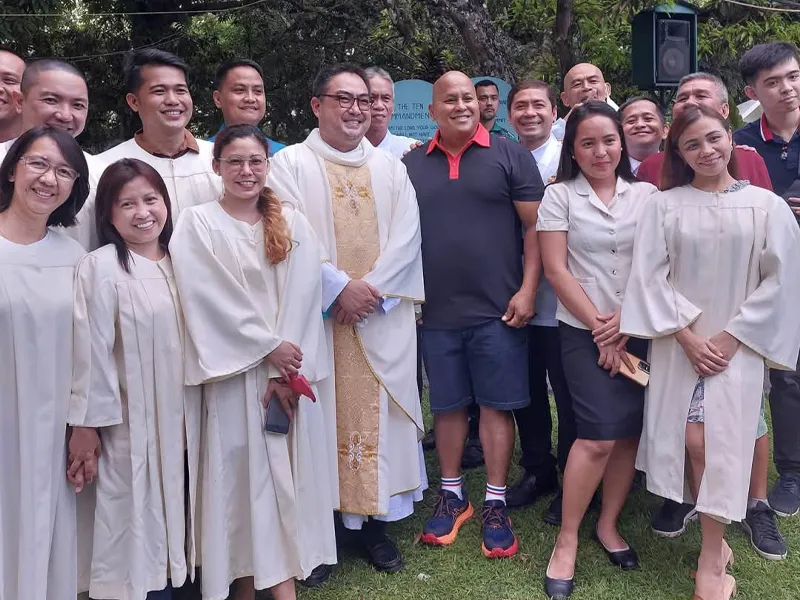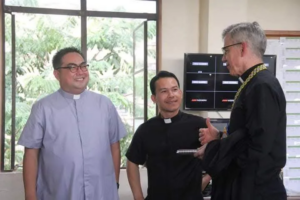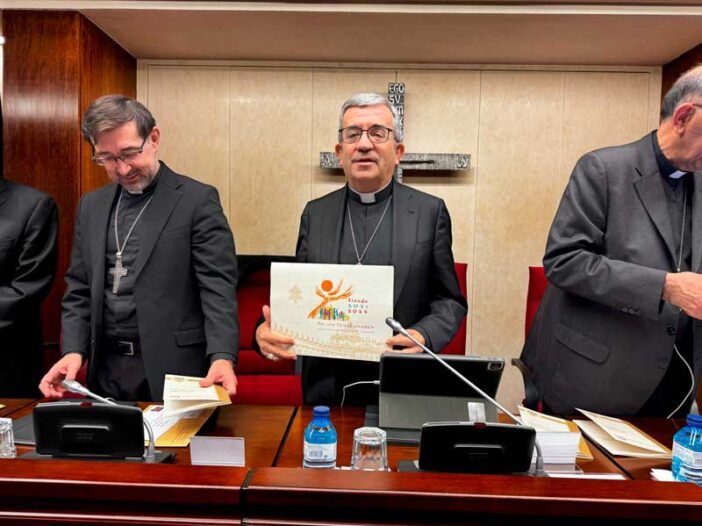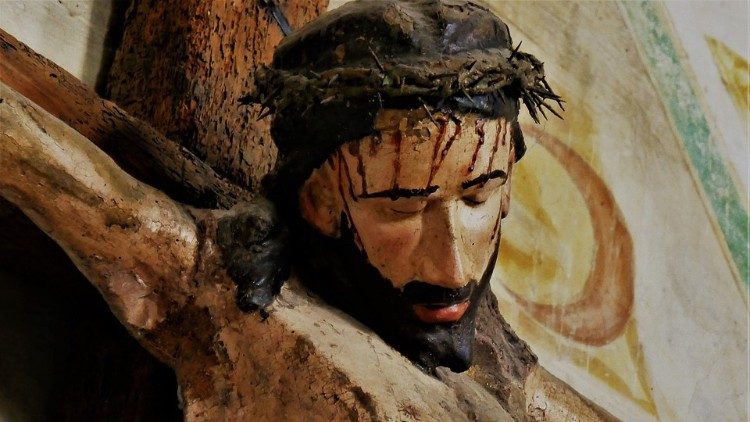“The priest finds his reason for being in the Eucharist”
The Eucharist is the center of all priests and of the priesthood of Father Jeus Jardin, a priest from the Philippines, who abandoned his nursing career to follow his vocation and God's call

Jeus Jardin found his vocation in the Eucharist, leaving his nursing career to follow God’s invitation to become a priest.
Coming from a non-practicing family, this Filipino priest, who, after resisting God’s call for a time, shares his testimony of how he eventually surrendered to the voice that told him to consecrate himself only to Him.
God writes straight with crooked lines and creates authentic works of art. This is the case of Father Jeus Jardin, a Filipino priest of the Archdiocese of Davao, who knew God’s love in his childhood and adolescence, despite coming from a non-practicing family, thanks to the important role of his grandmother.
Having already taken the big step toward becoming a priest, despite his parents’ opposition, he would soon leave the seminary. He pursued a degree in nursing and eventually worked as a university professor. But those letters that God had infused into his heart would not fade, until finally, he had to surrender to the obvious path he should follow.
He had a good life and had even obtained permission to practice nursing in the United States, but he knew he was called to a much higher mission. So, with humility and eight years later, he asked to re-enter the seminary to finally be ordained a priest in 2017. And he saw that everything was done well.
 A Call to the Heart
A Call to the Heart
“God always has his way of making His will known through the desires of each heart, and the same thing happened with me, because I felt that the Lord continued to call me to the priesthood,” he explains in this interview.
Father Jeus confesses that his heart told him that if he wanted to be happy, he had to return to his roots, in this case, the seminary. In reality, his life was going well, but neither money nor the fear of losing everything he had achieved professionally could overcome God’s call. “I saw that happiness didn’t come from there, and my heart felt it,” he adds.
Upon returning to the seminary, his bishop decided to send him to study at the Bidasoa International Seminary and the University of Navarra, thanks to a study grant from the CARF Foundation, which greatly allowed him to strengthen and confirm his priestly vocation.
Learning to be a priest
“I was in Pamplona for seven years, five as a seminarian in Bidasoa and two as a priest. Pamplona is my second home. As a seminarian, I had mentors who are truly men of God, who taught me not only with their words, but also with their own lives, what a priest is like,” Jeus Jardin notes with conviction.
His years in Pamplona not only gave him a solid intellectual formation, but, specifically citing Bidasoa, the University of Navarra, and, during his second stay in Spain, the Cristo Rey residence on Padre Barace Street in Pamplona, he asserts that it was in these places “where they taught me to be a priest, a friend, and a person, and that’s why I can say they have taught me a lot.”
Now, Jeus Jardin himself transmits this same spirit in his archdiocese’s seminary, where he shows young people the great challenges facing today’s priests. In his opinion, this is the best advice for facing them: “try to understand each person’s limitations and not exceed them; value times of prayer and spiritual direction; and learn to rest with Our Mother and the Lord.” He also emphasizes the importance of the Holy Mass: “The priest finds his fundamental reason for being in the Eucharist; it is the reason for his priesthood.”
 Don’t Fear Silence
Don’t Fear Silence
Faced with the vocations crisis that seems to be ravaging the Church at this time, Father Jeus remains hopeful and assures us that “the Lord is always calling, although to hear His voice, we need the ability to listen and not fear silence, because the Lord calls, but His voice is subtle.”
He invites young people who have already heard this call not to be afraid to respond. “In my experience, I see how I was very afraid of leaving the things I had: that I would earn less money, that I wouldn’t be able to have a house or a car. But the Lord is a good payer. We are not called only to have material goods. We are called to a transcendent life, to a life in communion with God. That is where our happiness lies,” he adds.
As his most memorable moment as a priest, he recalls one in which he was able to experience Providence very clearly, where he had to put into practice everything he had previously learned. “At the seminary where I currently serve as treasurer, we are facing a COVID outbreak with about 75 infected people, including seminarians and priests.
My test was negative, but because of my position, I decided to be with all those who were sick. We were able to live together and survive, and truly experience God’s providence. The days of quarantine with the seminarians and priests have become unforgettable days for me,” he recalls.
Finally, this priest from the Philippines wants to express his gratitude to the benefactors of the CARF Foundation who have done so much good for him, first as a seminarian and then as a priest: “Thank you all so much. Your support makes it possible for seminarians and priests like me to receive the necessary training for the task of being a pastor. May God reward you.”
Related

Family Valued: An international appeal for the family
Exaudi Staff
01 April, 2025
2 min

Bishop Luis Argüello Addresses the Challenges of the Church in Spain
Exaudi Staff
01 April, 2025
2 min

THE WAY OF THE CROSS: Accompanying Jesus on the way to the Cross
Luis Herrera Campo
31 March, 2025
5 min

Mother Carmen Rendiles, the first Venezuelan saint proclaimed by the Universal Catholic Church
Exaudi Staff
31 March, 2025
3 min
 (EN)
(EN)
 (ES)
(ES)
 (IT)
(IT)

